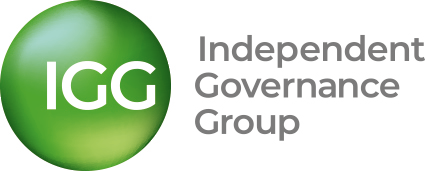Independent Governance Group ("IGG") is the trading name of Ross Trustees Services Limited (07904277), Independent Trustee Services Limited (02567540), Independent Trustee Limited (02473669), Clarity Trustees Limited (12470917), Clark Benefit Consulting Limited (08235483), Leadenhall Independent Trustees Limited (02303944) all registered in England and Wales.
Registered offices are at Westgate House, 9 Holborn, London EC1N 2LL.
© 2024 Ensco 1375 Limited, Ross Trustees Services Limited & Independent Trustee Services Limited. All Rights Reserved.
We are audited annually by the Audit and Assurance Faculty (AAF) and are currently AAF 02/07 accredited.
